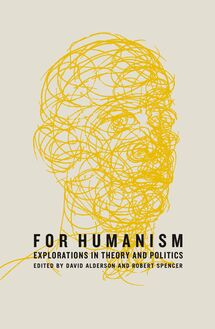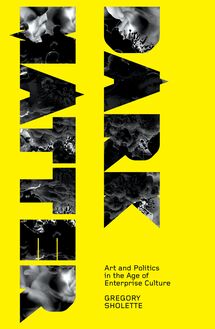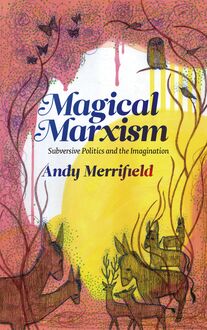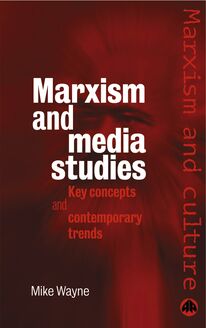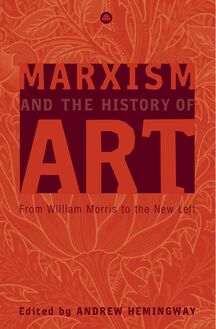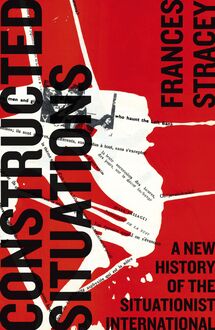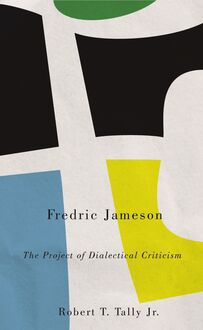Magical Marxism , livre ebook
148
pages
English
Ebooks
2011
Vous pourrez modifier la taille du texte de cet ouvrage
Obtenez un accès à la bibliothèque pour le consulter en ligne En savoir plus
Découvre YouScribe en t'inscrivant gratuitement
Découvre YouScribe en t'inscrivant gratuitement
148
pages
English
Ebooks
2011
Vous pourrez modifier la taille du texte de cet ouvrage
Obtenez un accès à la bibliothèque pour le consulter en ligne En savoir plus
Publié par
Date de parution
04 février 2011
Nombre de lectures
1
EAN13
9781783710904
Langue
English
Poids de l'ouvrage
1 Mo
*Shortlisted for the Bread and Roses Prize, 2012*
Andy Merrifield breathes new life into the Marxist tradition.
Magical Marxism demands something more of orthodox Marxism - something more interesting and liberating. It asks that we imagine a Marxism that moves beyond debates about class, the role of the state and the dictatorship of the proletariat. In escaping the formalist straitjacket of typical Marxist critique, Merrifield argues for a reconsideration of Marxism and its potential, applying previously unexplored approaches to Marxist thinking that will reveal vital new modes of political activism and debate.
This book will provoke and inspire in equal measure. It gives us a Marxism for the 21st century, which offers dramatic new possibilities for political engagement.
Preface
Introduction: The Circulation of Revolt: Real and Fictitious Marxism
1. Living an Illusion: Beyond the Reality of Realism
2. Subscribing to the Imaginary Party: Notes on a Politics of Neo-Communism
3. Spontaneous Overflow of Powerful Feeling: Activism and Immateriality
4. Militant Optimism and the Anti-Capitalist Transition
5. Macondo of the Mind: Imagination Seizes Power
6. Butterflies, Owls, and Little Gold Fishes: Conjuring up Revolutionary Magic
Notes
Index
Publié par
Date de parution
04 février 2011
Nombre de lectures
1
EAN13
9781783710904
Langue
English
Poids de l'ouvrage
1 Mo
Magical Marxism
Marxism and Culture
Series Editors:
Esther Leslie (Professor in Political Aesthetics at Birkbeck, University of London) and
Mike Wayne (Reader in Film and Television Studies at Brunel University)
Red Planets
Marxism and Science Fiction
Edited by Mark Bould and China Mi ville
Marxism and the History of Art
From William Morris to the New Left
Edited by Andrew Hemingway
Philosophizing the Everyday
The Philosophy of Praxis and the Fate of Cultural Studies
John Roberts
Dark Matter
Art and Politics in the Age of Enterprise Culture
Gregory Sholette
Marxism and Media Studies
Key Concepts and Contemporary Trends
Mike Wayne
First published 2011 by Pluto Press 345 Archway Road, London N6 5AA and 175 Fifth Avenue, New York, NY 10010
www.plutobooks.com
Distributed in the United States of America exclusively by Palgrave Macmillan, a division of St. Martin s Press LLC, 175 Fifth Avenue, New York, NY 10010
Copyright Andy Merrifield 2011
The right of Andy Merrifield to be identified as the author of this work has been asserted by him in accordance with the Copyright, Designs and Patents Act 1988.
British Library Cataloguing in Publication Data A catalogue record for this book is available from the British Library
ISBN 978 0 7453 3060 0 Hardback
ISBN 978 0 7453 3059 4 Paperback
ISBN 978 1 7837 1090 4 ePub
Library of Congress Cataloging in Publication Data applied for
This book is printed on paper suitable for recycling and made from fully managed and sustained forest sources. Logging, pulping and manufacturing processes are expected to conform to the environmental standards of the country of origin.
10 9 8 7 6 5 4 3 2 1
Designed and produced for Pluto Press by Chase Publishing Services Ltd, 33 Livonia Road, Sidmouth, EX10 9JB, England Typeset from disk by Stanford DTP Services, Northampton, England Simultaneously printed digitally by CPI Antony Rowe, Chippenham, UK and Edwards Bros in the USA
To Corinna and Lili-Rose, and their magic
Give us back our power of wonderment / I m calling upon the magician
Aim C saire
The act of the imagination is an act of magic
Jean-Paul Sartre
CONTENTS
Series Preface
Preface
Introduction: The Circulation of Revolt-Real and Fictitious Marxism
1 Living an Illusion: Beyond the Reality of Realism
2 Subscribing to the Imaginary Party: Notes on a Politics of Neo-Communism
3 Spontaneous Overflow of Powerful Feeling: Activism and Immateriality
4 Militant Optimism and the Great Escape from Capitalism
5 Macondo of the Mind: Imagination Seizes Power
6 Butterflies, Owls, and Little Gold Fishes: Conjuring up Revolutionary Magic
Notes
Name Index
Subject Index
SERIES PREFACE
What if the whole edifice is not as hegemonic as it appears? What if we only need a little, perhaps, a lot more imagination, now that economic crisis has twinned with the virtual collapse of legitimacy for much of the political class that signed up to the neo-liberal paradigm? What if the Marxist critique of capitalism is already the common-sense of many activists busily building alternative models to existing society? What if these practical political projects suggest to Marxism that to move from critique to practice , it must rethink means and even some ends? The 1990s spawned a new language of resistance and Andy Merrifield s book, the latest in the Marxism and Culture series, reflects that, as well as an impatience with some of the traditional language and concepts of Marxism, especially the ones that block the paths from critique to practice.
Everybody knows (as Leonard Cohen once sang) that the ship is leaking and that the captain lied. Given this, the task might be to move beyond recycling ever more opaque ways of saying pretty much the same thing (the frequent fate of academic Marxism) and get on with the task of fashioning a language fit for intervention and engagement. But intervention and engagement with whom? A small and by no means the most important part of what Magical Marxism offers the reader, is a survey of the many who are already creating practical models of alternative living. In those alternative models lie the seeds of future visions that challenge not only capitalism s logic but some traditional Marxist thinking on the good society as well and how to get there. Marxism s traditional paradox is that to succeed in the long run it must create the conditions that destroy the means by which it at first succeeds in the short run. Party, state and labor are not ends in themselves. At best they can only be the means to begin a journey that must at some point diminish these motors of change if something really new is to emerge. Perhaps, as is argued in this book, the journey cannot begin at all with these motors. Lots of things that augur the genuinely new are in fact to be found outside the traditional terrain of the left.
Integration and intimidation muzzled the traditional political agent of Marxism (the organized workers) after the tumult of the 1960s and 1970s-but resistance is mobile and it simply relocated and mobilized in different forms. The language of liberation is increasingly one of living differently, a rather broader and many would argue a more radical vision than the more narrow workerist focus of Marxism s traditional political imaginary. To live differently requires breaking the ossified husk of the old society and kick-starting the imagination as the creative wellspring from which real change comes. In the traditional Marxist imaginary, workers taking control of the means of production-usually the factory-was the powerful prefigurative projection into the future that served as the springboard for what a different society would look like. But what if the embryonic outlines of a different society are being drawn in many different ways outside the traditional model? A Marxism open to these initiatives would indeed be magical.
The prefigurative dynamic of culture thus looms large here as a resource for a new political imagination, inspired in large part by the culture and politics of Latin America, which has, since the 1990s, been the epicenter for resistance to neo-liberal capitalism. There are many cultures of living, of living cultures, that seed values, perspectives, habits, etc., that are explicitly antithetical to corporate capitalism, state power, and more broadly, institutional life, with its bureaucracies and hierarchies. If the participants of these new ways of living appear in the west to be overwhelmingly white and middle class, this does not in itself torpedo the validity of the politics, not least because similar political themes crop up in the global South where political agency is brown, black, and poor.
A new language of liberation is a risky project and as with everything new, it will make mistakes, go up blind alleys and fall flat on its face once in a while. In this new language, a more orthodox Marxism might with reason wonder where the state is in all this talk of imminent transformation? For perhaps the edifice is not as shaky as it appears? Perhaps the timber is being happily colonized by the woodworm of alternative projects, but the concrete and steel remains sturdy and strong and will not be eaten away from within? And perhaps in many cases, these alternative projects, these alternative ways of living are content to remain autonomous zones , various escape routes that will never converge, never seeking broader social transformation?
Yet for all the difficulty in coming up with answers to such hard political questions, a more orthodox Marxism must let itself be infused by the utopian energies and aspirations, politics, and practical ideas flowing from the movement of movements. It must ask the hard questions to itself as much as to these multiple alternatives flourishing independently of corporate and state surveillance and power (independent for now, but what of tomorrow?). This is so if Marxism does not want to imitate what it seeks to overthrow.
The gap between the multiple political subjects today and the political subject of Marxism s traditional imagination may still one day close in unexpected ways. And one suspects that such a prospect would truly frighten the life out of our rulers. As general strikes roll across Europe as the economic crisis unfolds, it is obvious that such a convergence cannot be ruled out. For the moment it is in this gap that any revitalization of Marxism and socialism will be found. It is not the project of this book to attempt to close this gap and reconfigure both sides of the equation, the old political subject and the new political subjects. But arguably this is what the coming revolutions must accomplish and will only do so with the help of intelligently optimistic, imaginative and poetic works like Andy Merrifield s Magical Marxism .
Esther Leslie (Professor in Political Aesthetics at Birkbeck, University of London) and Mike Wayne (Reader in Film and Television Studies at Brunel University)
PREFACE
This book attempts to make mischief with Marxism, tries to subvert and refresh it, tries to shake it up from within . It pits a fantastical, dreaming Marxism in comradely opposition to scientific and staid versions of Marxism, doing so as it denounces the criminality of bourgeois society. It s a book that will doubtless fall between two stools, appalling the purists for its revisionist meanderings, turning off others with its Marxist pretensions, because it remains too Marxist. Yet what s on offer here isn t a deeper, more profound Marxism so much as a broader, more versatile one, a more supple Marxism that happily falls between these two stools because it bounces right back up again; and, besides, down there, in the space in between, between the stools, lurks a great big shady world of other mischief makers, young radical people, and maybe a few older ones, too, all of whom fall between two stools themselves. This book hopes to find its audience in this shady w
